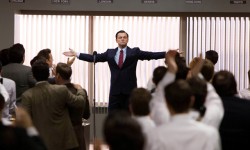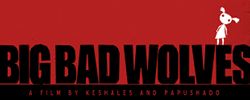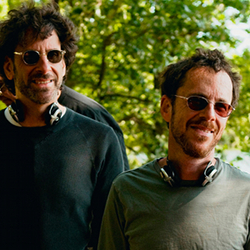
Review: Inside Llewyn Davis (2013) - NP Approved

Cast: Carey Mulligan, Justin Timberlake, John Goodman
Director: Ethan Coen, Joel Coen
Country: USA
Genre: Drama | Music
Official Trailer: Here
Editor’s Notes: Inside Llewyn Davis is now open in limited release. For an additional perspective, read Corina’s review (88/100).
Inside Llewyn Davis (2013) is a pure Coen Brothers film from start to finish. It is quiet, contemplative and laugh out loud funny all the way through, sometimes all in the same scene. It has a more laid back tone like their films Blood Simple (1984), Fargo (1996), No Country for Old Men (2007), and A Serious Man (2009), while keeping the understated humor of Fargo (1996), The Big Lebowski (1998) and Burn After Reading (2008). It’s also a film driven by its soundtrack, much like Raising Arizona (1989) and O Brother, Where Art Thou? (2000).
The story, set in the middle of the folk music revival in 1961, is of burgeoning folk singer Llewyn Davis (Oscar Isaac). He’s trying out a solo act after the death of his partner and he’s not having a very easy time of it. He recorded an album that isn’t selling, he plays gigs when he can get them and he has a manager that doesn’t really do much of anything for him.
Inside Llewyn Davis (2013) is a pure Coen Brothers film from start to finish. It is quiet, contemplative and laugh out loud funny all the way through, sometimes all in the same scene.
On top of trying to be a unique voice in a sea of people singing much of the same material, Llewyn is also a tremendous jerk. He crashes on any couch he can for as long as he can, never getting a place of his own and doesn’t really discriminate about whom he sleeps with. That leads us to his friends Jim (Justin Timberlake) and Jean (Carey Mulligan). They are a couple who lets him crash on their couch from time to time (Jim even throws some session work Llewyn’s way) and are making a name for themselves on the folk scene. Jim has a recording contract at Columbia, so they’re doing well. Jean is pregnant and she isn’t sure if the baby is Jim’s (which she wants) or Llewyn’s (which she really, really, really doesn’t want). She’s angry at Llewyn for sleeping with her, but I think she’s angrier at herself for cheating on Jim.

Then there is the cat. See, Llewyn was staying at a nice apartment on the upper east side of New York with a rich middle aged couple who are into the folk scene and fans of Llewyn. As he was leaving, their cat got out and the door locked behind him. So, he takes the cat with him around town for a day or two until it escapes out of Jim and Jean’s window. He thinks he locates it, catches it and returns it only to discover he captured the wrong cat and he doesn’t know what to do with it.
What’s remarkable about Inside Llewyn Davis isn’t so much what it’s about, it is how the Coens go about telling it. They don’t make an overt plot, they just sort of let things happen to Llewyn. The story comes organically and without force. Everything that happens feels logical because he pretty much gets what he gives, just indirectly. He’s mean to nearly everyone and via unstated karma bad things happen to him.
Oscar Isaac is also a kind of understated powerhouse throughout the film. He’s utterly convincing as a busking (busking is what they call it when folksingers play and pass a hat around for money. According to folk legend Ramblin’ Jack Elliot, it comes from the Spanish ‘buscar’ which means ‘to search’) folksinger. Isaac doesn’t affect any pretenses, he just moves along with a kind of angry pseudo-determination. Davis says he wants to make it big, but he doesn’t really put much effort into it. He’s talented and he knows it and he thinks that will get everything to pay off. Isaac knows his character and he makes you believe that Llewyn Davis is a real person, starring in a film about himself.
A lot of people will say that the Davis is a mirror for Bob Dylan, and I think that is inaccurate. Not just because Dylan shows up at the end (singing a song he didn’t write until 1963, but that’s a minor quibble since the song works perfectly with the end) but because he more reminds me of Ramblin’ Jack Elliot.
A lot of people will say that the Davis is a mirror for Bob Dylan, and I think that is inaccurate. Not just because Dylan shows up at the end (singing a song he didn’t write until 1963, but that’s a minor quibble since the song works perfectly with the end) but because he more reminds me of Ramblin’ Jack Elliot. Elliot is considered the link between Woody Guthrie and Bob Dylan. He learned at the feet of Guthrie while Dylan learned at Elliot’s feet since Guthrie was hospitalized and unable to sing and play any longer by the time Dylan arrived in New York. Elliot was, and still is, a legend on the folk scene but he never made it big almost because he didn’t want to. He remains an interpreter of folk songs but never became a songwriter like Dylan and the other artists that came out of the folk boom of the early 60s. He’s an amazing talent, but that never let him crack the big time. It’s his story that feels more like the basis of Llewyn than Dylan. It’s possible that if Llewyn existed, he’d still be on the folk circuit singing Dink’s Song (If I Had Wings), the song he is most famous for in the film, except it’s the recording with his dead partner that was famous. Dylan made it big, huge really, while Elliot still rambles around and that feels more like what would happen to Davis.
The film is less about what happens than how Davis develops. It’s a character study about how someone who just rambles along can actually start to care and commit to something. It’s possible that the show at the Gaslight (a popular folk club in the 60s, along with Gerde’s Folk City and the Café Wha?) changes his trajectory and he makes it bigger. He certainly seems to be changing a bit towards people (not much, he’s still a jerk but he is kind of trying).
The film brought back quite a bit for me, because this is the music that I listened to almost exclusively in college. I knew all of the songs performed in the film long before watching it and even performed a couple in some coffee houses long ago. The magic of it is that I don’t think you have to be imbedded in the culture or the time to understand and appreciate the film. I’ll admit that I got a few more of the jokes because I knew the scene from reading about it and listening to the songs, but not many. There is a joke involving the cat and his name late in the film that apparently was too obscure for most of the audience I saw the film with because I was the only one laughing and had to force myself to stop.
Because of its wit and quiet humor, Inside Llewyn Davis is one of the best films of the year and certainly one of the funniest. It captures the time it is set in perfectly and fills the screen with brilliant period detail as well as characters that, no matter how small the part, light up the screen. This may end up being one of the Coens’ best films, ranking with Miller’s Crossing (1990), Fargo (1996), The Big Lebowski (1998) and No Country for Old Men (2007).
Related Posts
![]()
Doug Heller
![]()
Latest posts by Doug Heller (see all)
-
Bryan Murray



























